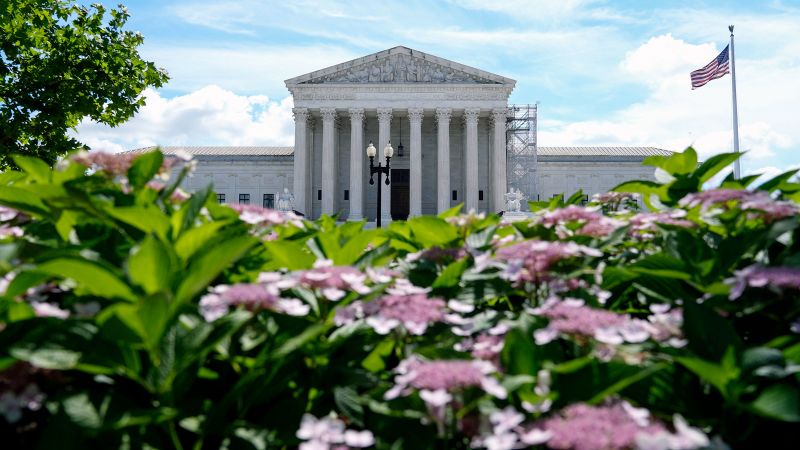In a landmark decision by the Supreme Court on Monday, former President Donald Trump was granted immunity from criminal prosecution for some actions taken during his presidency. This ruling is expected to further delay the trial on federal election subversion charges against him. The ruling, which was closely watched, was decided by a 6-3 margin, with the dissenting votes coming from the court’s liberal justices.
Chief Justice John Roberts, writing on behalf of the majority, stated that “under our constitutional structure of separated powers, the nature of presidential power requires that a former president have some immunity from criminal prosecution for official acts during his tenure in office.” However, Roberts also clarified that the President is not above the law and that immunity does not extend to unofficial acts.
The decision was met with approval from Trump, who hailed it as a “BIG WIN FOR OUR CONSTITUTION AND DEMOCRACY” on social media platform, Truth Social. Trump’s legal team expressed optimism that the ruling could undermine the case brought against him by special counsel Jack Smith, as communications with then-Vice President Mike Pence and Department of Justice officials could now be considered official acts and therefore not admissible as evidence.
The dissenting opinion, written by Justice Sonia Sotomayor, criticized the majority’s decision, stating that it “makes a mockery of the principle, foundational to our Constitution and system of Government, that no man is above the law.” Sotomayor raised concerns about the implications of granting immunity for official acts, warning that it could give the President unchecked power and erode the relationship between the President and the people.
The Supreme Court’s ruling leaves many questions unanswered and raises important issues about the limits of presidential power. The decision will likely have far-reaching implications for future cases involving former presidents and their official actions.











